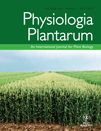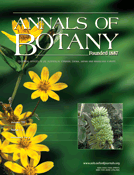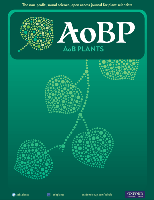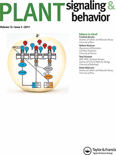
Horticultural Plant Journal
Scope & Guideline
Nurturing Insights in Horticulture and Ecology
Introduction
Aims and Scopes
- Plant Genetic Research:
The journal focuses on the genetic and molecular basis of traits in horticultural crops, including resistance to diseases, abiotic stress tolerance, and fruit quality enhancement. - Physiological and Biochemical Studies:
Research investigating physiological processes such as photosynthesis, stress responses, and metabolic pathways in horticultural plants is a core area, contributing to improved cultivation practices. - Transgenic and Biotechnology Applications:
The journal publishes studies on genetic engineering and biotechnological approaches, including CRISPR/Cas9 technologies, aimed at enhancing crop traits and developing sustainable horticultural practices. - Ecological and Microbiological Interactions:
Research on plant interactions with microorganisms, including beneficial fungi and bacteria, and their roles in enhancing plant growth and resilience is emphasized. - Environmental Stress Responses:
The journal covers how horticultural plants respond to various abiotic stresses such as drought, high temperatures, and nutrient deficiencies, providing insights for climate adaptation. - Horticultural Practices and Crop Management:
Studies addressing practical aspects of horticultural management, including soil health, irrigation strategies, and postharvest handling, are integral to the journal's scope.
Trending and Emerging
- Genomics and Transcriptomics:
There is a significant increase in studies utilizing genomic and transcriptomic techniques to understand complex traits in horticultural crops, highlighting the role of gene regulation in plant development. - Stress Tolerance Mechanisms:
Research focused on the molecular mechanisms underlying plant resilience to abiotic stresses, such as drought and heat, is gaining prominence as climate change impacts agriculture. - Microbiome Research:
The role of plant-associated microbiomes in promoting growth and disease resistance is emerging as a critical area of study, reflecting a holistic understanding of plant health. - CRISPR and Genome Editing Technologies:
The application of CRISPR and other genome-editing technologies is rapidly expanding, with numerous studies aiming to enhance crop traits and improve food security. - Plant-Microbe Interactions:
Increasing interest in the interactions between plants and their microbial communities is driving research into sustainable agricultural practices and biotic stress resistance. - Sustainable Practices and Climate Resilience:
Research focusing on sustainable horticultural practices, including organic farming and climate-resilient crop varieties, is trending, aligning with global sustainability goals.
Declining or Waning
- Traditional Breeding Techniques:
There has been a noticeable decrease in studies focusing on classical breeding methods as researchers increasingly adopt genomic and biotechnological approaches for crop improvement. - Focus on Ornamental Plants:
Research specifically targeting ornamental horticulture appears to be waning, with a growing emphasis on food crops and functional plant traits. - Conventional Pest Management Strategies:
The journal has seen fewer articles centered on traditional chemical pest control methods, likely due to an increasing focus on integrated pest management and sustainable practices. - Basic Morphological Studies:
There is a decline in publications dedicated to basic morphological descriptions of plants, as the field moves towards more functional and molecular approaches. - Nutritional Studies of Horticultural Products:
Research on the nutritional aspects of horticultural products is becoming less common, possibly overshadowed by a focus on genetic and biochemical research.
Similar Journals

Annual Plant Reviews Online
Connecting Research and Innovation in Plant BiologyAnnual Plant Reviews Online, published by WILEY, serves as a premier academic resource dedicated to the evolving field of plant sciences, including specialties in agronomy, horticulture, and food science. With an impressive Q1 ranking in Horticulture and Q2 classifications in Agronomy, Crop Science, and Plant Science, this journal reflects a high standard of scholarly contribution, evidenced by its positioning in the 75th percentile range among agricultural and biological sciences in leading Scopus rankings. Aimed at researchers, professionals, and students alike, the journal covers a broad spectrum of plant-related topics and trends, aiming to enhance the understanding of plant biology and its applications. Offering timely insights and critical reviews, Annual Plant Reviews Online connects the global community with essential knowledge, supporting advancements in sustainable practices and innovations in agriculture. Researchers and students can access its content seamlessly, contributing to ongoing discussions in plant science and fostering academic growth.

PHYSIOLOGIA PLANTARUM
Exploring the Molecular Mechanisms of Plant LifePHYSIOLOGIA PLANTARUM, published by WILEY, is a prestigious journal in the fields of plant science, physiology, and genetics, known for its impactful contributions since its inception in 1948. With an impressive impact factor and a consistent ranking in the Q1 and Q2 quartiles, it stands out in critical disciplines such as cell biology and biochemistry, ranking #24 in Plant Science with a remarkable 95th percentile standing. This journal primarily serves researchers and professionals committed to advancing the understanding of plant functions, responses, and their molecular mechanisms. Its broad scope allows for a diverse array of studies, ensuring that groundbreaking research is accessible to the global scientific community. Although it does not offer Open Access, PHYSIOLOGIA PLANTARUM remains a vital resource for scholars looking to stay at the forefront of plant biology and related fields.

ANNALS OF BOTANY
Nurturing the Future of Plant Science with Every PublicationANNALS OF BOTANY, published by Oxford University Press, stands as a leading journal in the field of Plant Science, with a distinguished history that dates back to 1887. This esteemed journal, recognized for its contribution to the advancement of botanical research, holds a prestigious Q1 quartile ranking in its category as of 2023. With a commitment to sharing high-quality, peer-reviewed research, ANNALS OF BOTANY provides a vital platform for researchers, professionals, and students to disseminate novel findings and engage in scholarly discourse. Although it does not currently offer open access options, the journal remains accessible to a wide academic audience, further cementing its role in facilitating the exchange of knowledge within the global botanical community. For those interested in the dynamic and evolving world of plant sciences, ANNALS OF BOTANY is an indispensable resource.

BIOLOGIA PLANTARUM
Cultivating Knowledge in Horticulture and BeyondBIOLOGIA PLANTARUM, esteemed within the realms of horticulture and plant science, is a leading academic journal published by the Academy of Sciences of the Czech Republic, Institute of Experimental Botany. Established in 1959, this journal showcases innovative research and advancements in plant biology, focusing on a spectrum of topics including plant physiology, genetics, and biotechnology. With an impressive Scopus ranking in Horticulture (Rank #41/115) and Plant Science (Rank #221/516), it holds a significant place in the academic community, reflected in its Q2 and Q3 status within its respective categories. Although it is not open access, authors are encouraged to contribute to the growing body of knowledge that supports sustainable practices in agriculture and horticulture. Published in the Netherlands, BIOLOGIA PLANTARUM continues to foster collaboration and dialogue among researchers, professionals, and students dedicated to understanding and advancing plant sciences.

JOURNAL OF PLANT BIOLOGY
Cultivating Knowledge for Sustainable SolutionsJOURNAL OF PLANT BIOLOGY, published by SPRINGER HEIDELBERG, is a leading academic journal dedicated to advancing the field of plant science. With an impressive impact factor signifying its high citation rate and rigorous peer-review process, this journal ranks in the Q1 category within Plant Science, placing it among the top-tier periodicals in the discipline. Established in 1999, it has become an essential resource for researchers, professionals, and students seeking the latest findings and developments in plant biology. The journal fosters a collaborative environment for sharing innovative research, exploring ecological interactions, and understanding plant physiology, thereby contributing significantly to advancements in sustainable agriculture and environmental conservation. Its high Scopus ranking of 102 out of 516 in the category of Agricultural and Biological Sciences further underscores its relevance and impact within the scientific community. For those interested in cutting-edge research, JOURNAL OF PLANT BIOLOGY is a vital source of knowledge, offering insights that are crucial for the future of plant science.

JOURNAL OF PLANT BIOCHEMISTRY AND BIOTECHNOLOGY
Bridging Research and Application in Crop ScienceJOURNAL OF PLANT BIOCHEMISTRY AND BIOTECHNOLOGY, published by SPRINGER INDIA, is a leading publication dedicated to advancing research in the fields of plant biochemistry, biotechnology, agronomy, and crop science. With an ISSN of 0971-7811 and E-ISSN 0974-1275, the journal encompasses a wide range of studies aimed at enhancing our understanding of plant biological processes and their applications in agriculture and biotechnology. It has achieved a noteworthy Q2 ranking in Agronomy and Crop Science and Plant Science, as well as a Q3 ranking in Biotechnology, reflecting its quality and relevance in contemporary research. Notably, the journal ranks #166 in Plant Science and #133 in Agronomy, both falling in the top 67th percentile. With a rich history spanning from 1992 to 2024, the journal is committed to providing open access to innovative research findings that bridge the gap between laboratory discoveries and their practical applications in sustainable agriculture. Researchers, professionals, and students will find a wealth of knowledge and inspiration to advance their work in the dynamic field of plant sciences at this esteemed journal.

JOURNAL OF PLANT RESEARCH
Bridging Research and Application in Plant Science.JOURNAL OF PLANT RESEARCH, published by SPRINGER JAPAN KK, is a leading academic journal that has carved a niche in the field of Plant Science. With its ISSN 0918-9440 and E-ISSN 1618-0860, this journal has been disseminating high-quality research since its inception in 1993 and continues to be essential reading for academics and practitioners alike, aiming to bridge the gap between innovative plant research and practical applications. The journal is highly regarded, holding a prestigious Q1 ranking in Plant Science for 2023, and is positioned in the top 80th percentile within the Scopus rankings for Agricultural and Biological Sciences. The journal's coverage includes a wealth of topics pertinent to advancing our understanding of plant biology, ecology, and sustainable agricultural practices. Although it operates under a subscription model, its influence in the research community remains profound, making it a vital resource for contemporary studies in plant-related disciplines.

EUROPEAN JOURNAL OF HORTICULTURAL SCIENCE
Advancing horticultural knowledge for a sustainable future.The European Journal of Horticultural Science, an esteemed publication of the International Society for Horticultural Science (ISHS), serves as a pivotal platform for advancing the field of horticulture since its inception in 2003. With its base in Germany, this journal occupies a significant position in the Q3 quartile of horticultural research, confidently ranked #60 out of 115 in the Agricultural and Biological Sciences category on Scopus, reflecting its relevance and impact within the scholarly community. The European Journal of Horticultural Science fosters open access to a wealth of research and insights, facilitating knowledge sharing among researchers, professionals, and students dedicated to the innovative and sustainable practices in horticultural science. As it embarks on a new chapter through its convergence years leading up to 2024, the journal aims to enhance the dialogue on contemporary horticultural challenges and advancements, making it an essential resource for those seeking to contribute to and learn from ongoing developments in this vital field.

AoB Plants
Unlocking the potential of plants for future generations.AoB Plants is a distinguished open-access journal published by Oxford University Press, dedicated to advancing the field of plant science. Since its inception in 2009, this journal has played a pivotal role in disseminating high-quality research that encompasses a wide range of topics including plant biology, ecology, and biotechnology. With an impressive impact factor and a ranking in the Q1 quartile for Plant Science, AoB Plants is recognized for its innovative contributions and scholarly rigor, ranking #129 out of 516 in the Scopus Agricultural and Biological Sciences category, placing it in the 75th percentile among its peers. By promoting open-access availability of research findings, the journal empowers researchers and practitioners alike, facilitating greater collaboration and knowledge sharing in the global scientific community. Situated in the heart of the United Kingdom, AoB Plants continues its commitment to providing a platform for pioneering research and developments in plant science, thus fostering a deeper understanding of the crucial roles that plants play in our ecosystems and economies.

Plant Signaling & Behavior
Unlocking the Secrets of Plant CommunicationPlant Signaling & Behavior is a prestigious journal published by TAYLOR & FRANCIS INC, dedicated to advancing the understanding of the complex signaling mechanisms and behavioral responses of plants. With an ISSN of 1559-2316 and an E-ISSN of 1559-2324, it has firmly established itself in the field of Plant Science, earning a Q1 ranking in the 2023 category quartiles and ranking #83 out of 516 in Agricultural and Biological Sciences, placing it in the 84th percentile according to Scopus metrics. The journal serves as a vital platform for researchers and professionals looking to publish innovative studies and reviews that explore the intricate relationships between plant behavior and environmental signaling. With coverage spanning from 2006 to 2024, Plant Signaling & Behavior not only enhances academic discourse but also supports the growing interdisciplinary nature of plant sciences. Although the journal is not open access, it remains a significant resource for students, researchers, and practitioners aiming to deepen their understanding of plant signaling and its implications for ecology and agricultural practices.